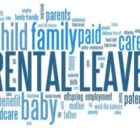Women's Health
As Pandemic Grinds On, Domestic Violence Shelters Grapple With Budget Gaps And Growing Needs
|
Katherine Verano is wrestling with an 830% increase in costs compared with last year for hoteling victims of domestic violence during the coronavirus pandemic. After a quiet period during the first months of the pandemic, when much of the state was locked down, domestic violence shelters started running at about 150% capacity during the summer months. When providers ran out of room for social distancing, clients had to be placed in hotels and fed. It’s been a complex time, said Verano, the executive director of Safe Futures, a New London-based nonprofit dedicated to providing counseling, services and shelter to victims of domestic violence in 21 southeastern towns. Safe Futures’ budget for hoteling clients has increased steadily this year.





